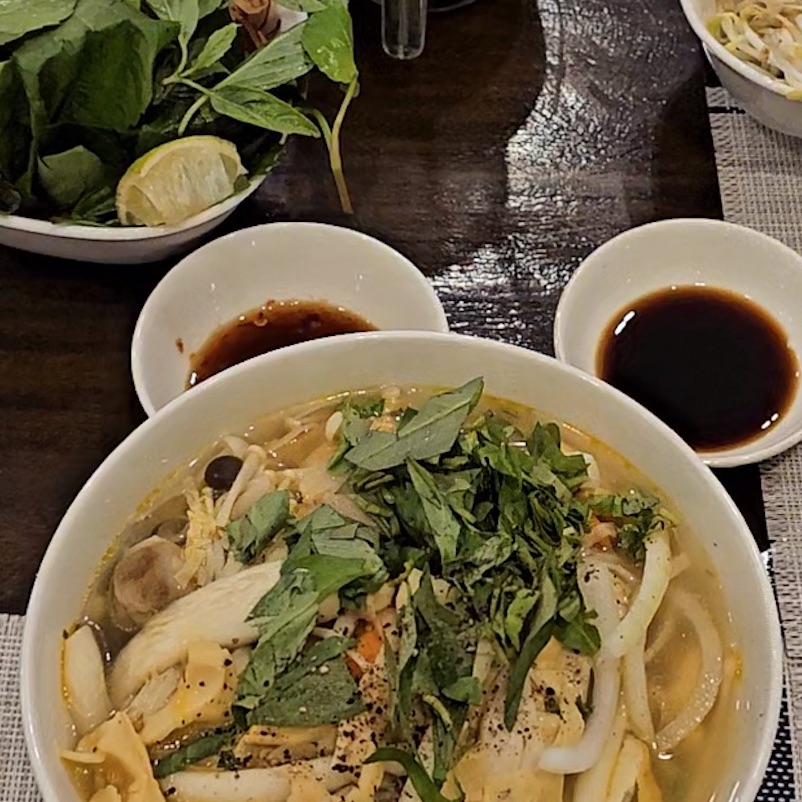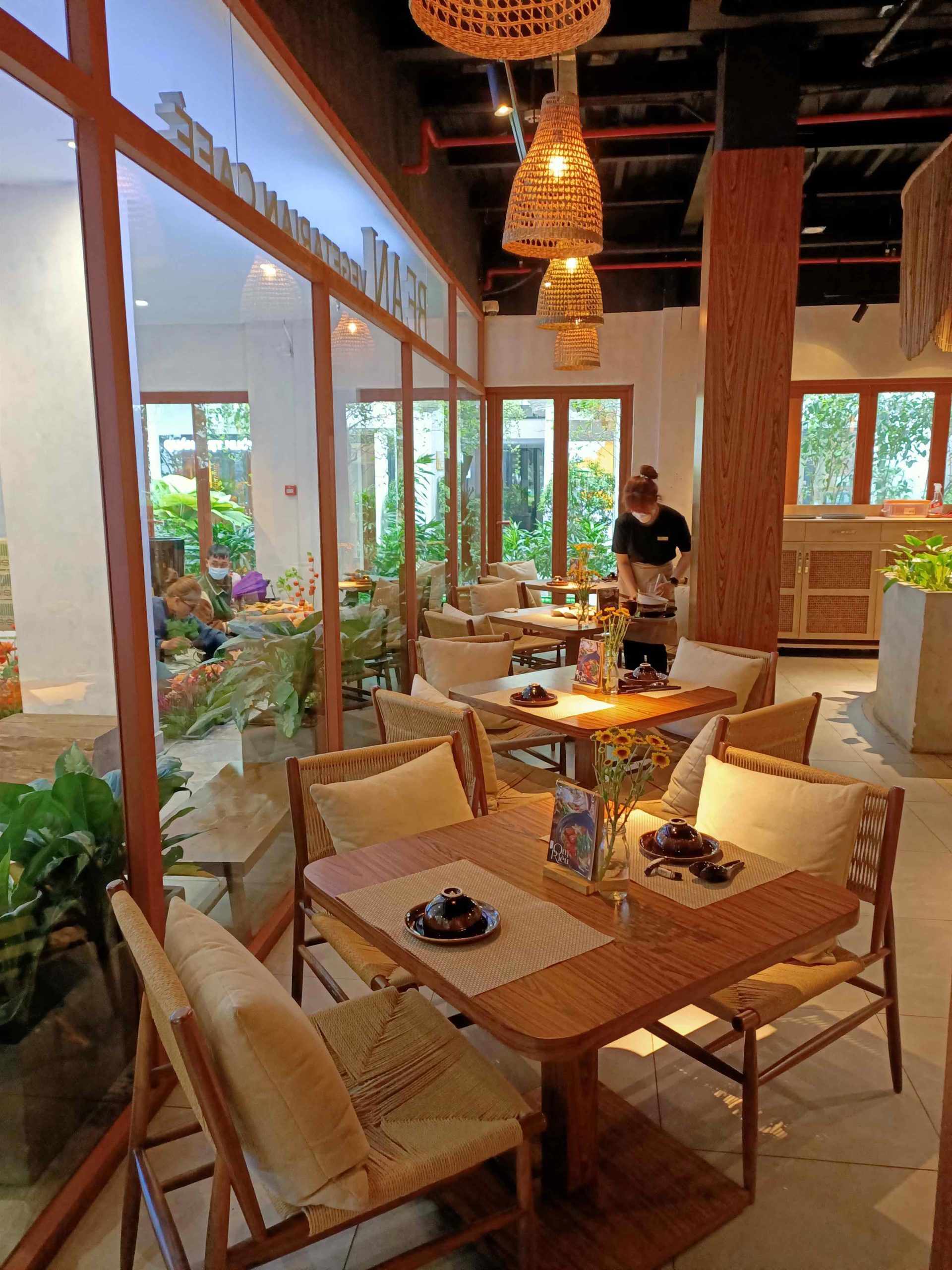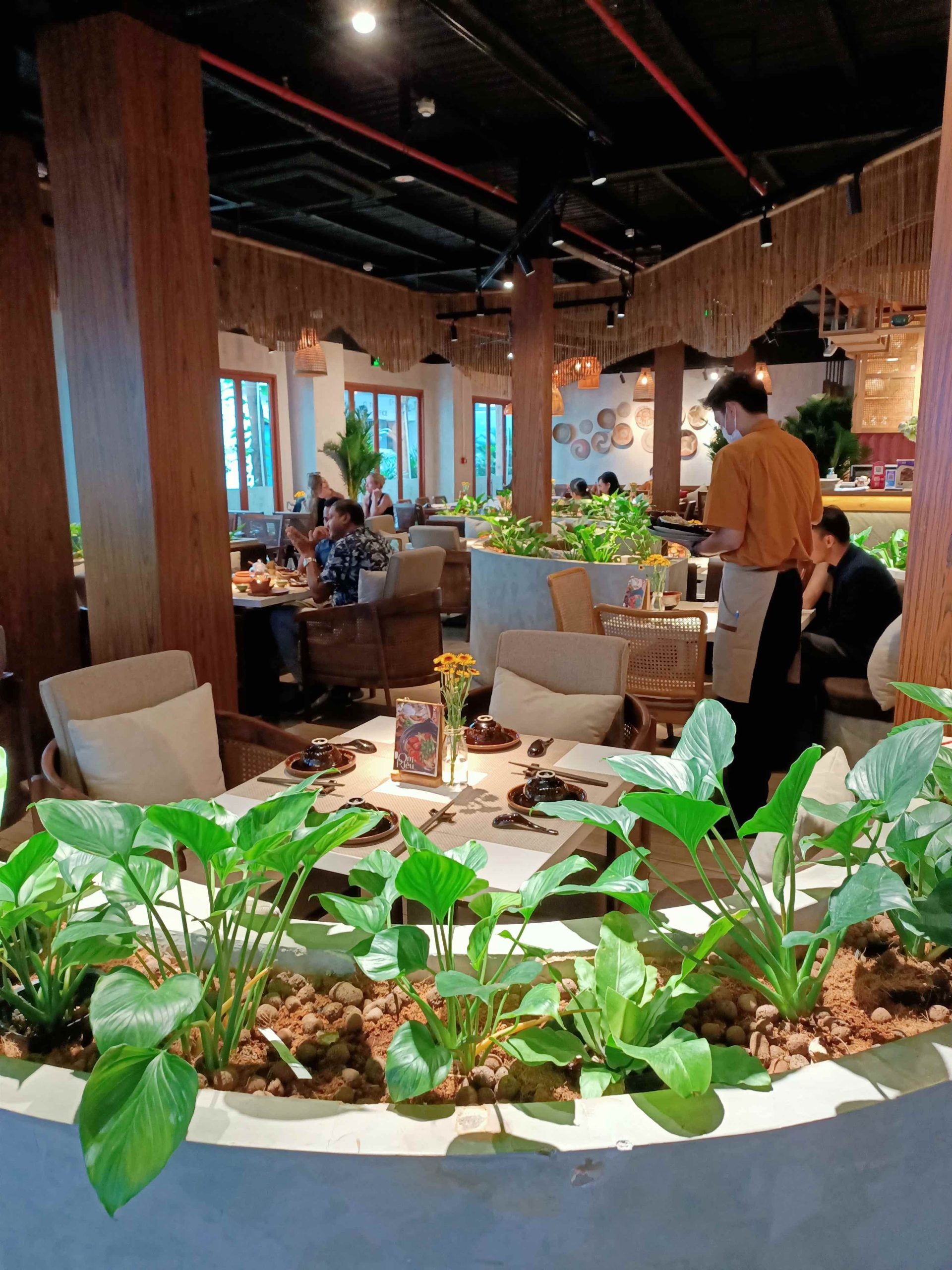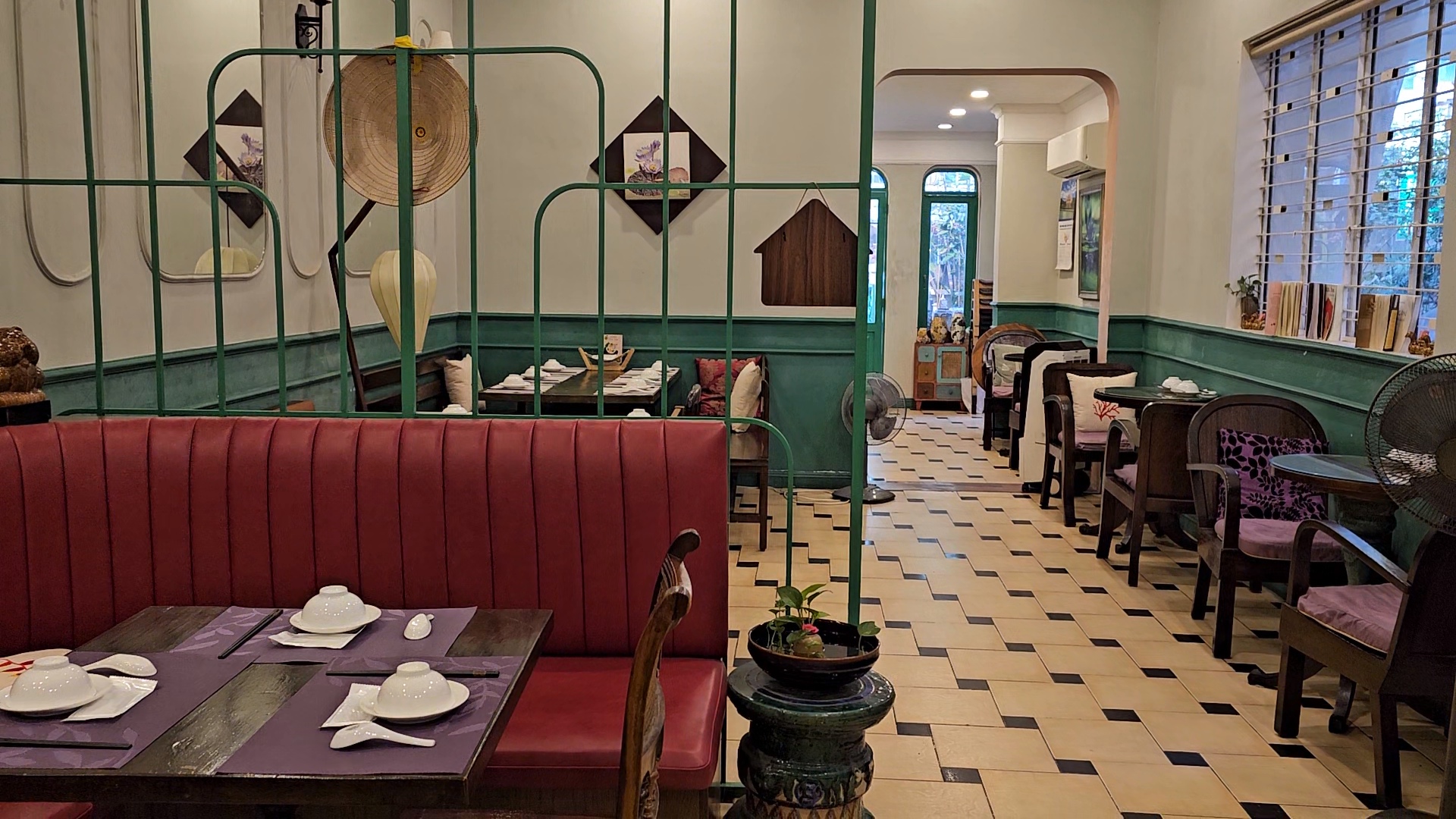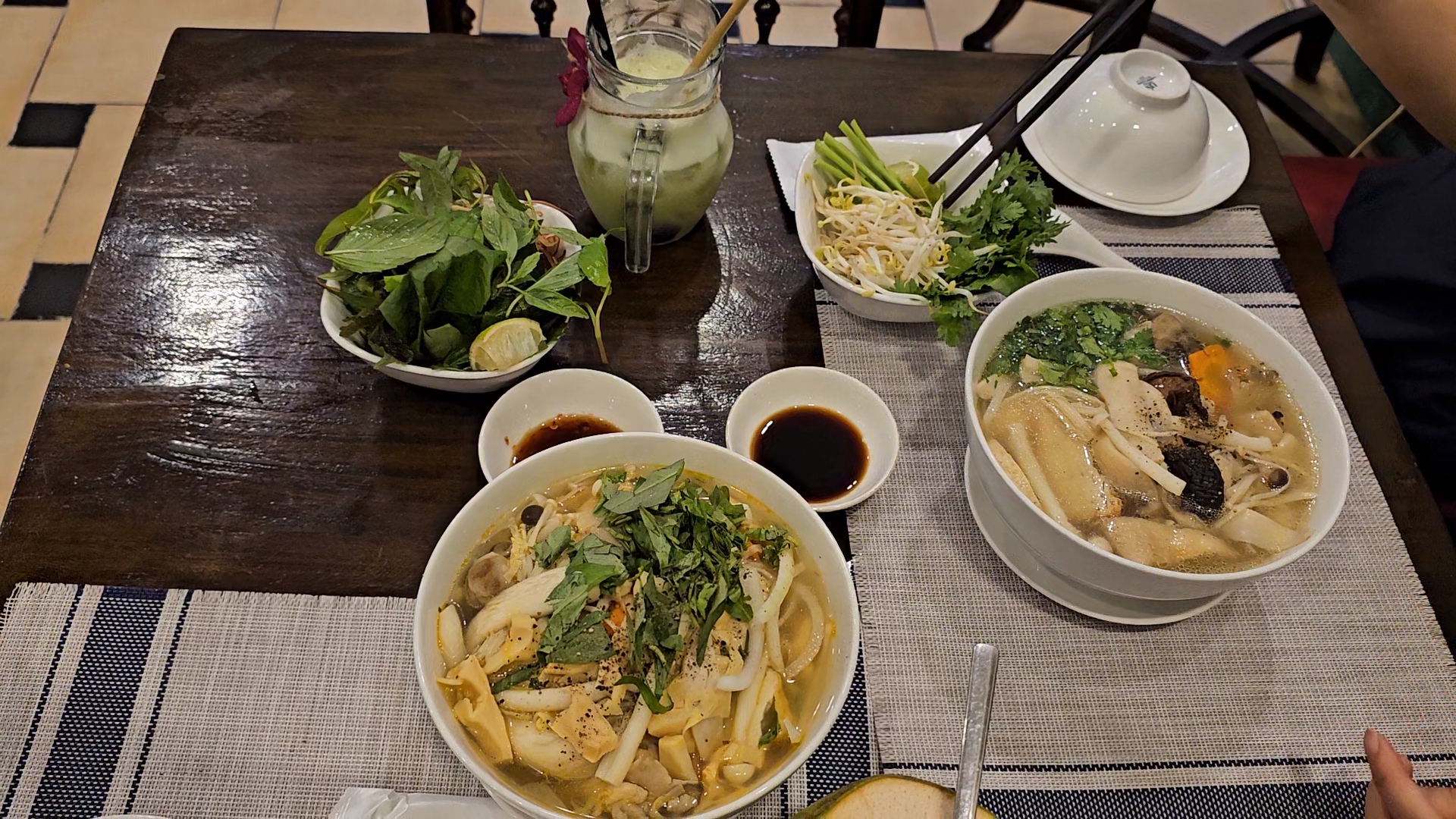Abstract: The papers in this special issue have highlighted new perspectives on food charity activities, as well as notions of food and ethics in contemporary Vietnam. As Vietnam is rapidly changing, food-related activities are dynamic phenomena that reflect the social, moral, and economic changes unfolding in society. However, ethnographic research on food culture in Vietnam published in English has been scarce. This epilogue provides a few exploratory insights into interesting social phenomena in recent years that exemplify the shifting landscape of cuisine and food ethics in modern Vietnam.
Key Words: Vietnam, Religion, Food, Charity, Philanthropy, Development, Globalization, Care, Vegetarianism, Class




Introduction
Food is the primary substance that sustains and nurtures life. Food, drinks, and commensality play a central role in most Asian cultures, and in Vietnamese culture in particular. Preparing, consuming, feeding, sharing, and offering food constitutes primary expression of care, caring relationships, and social bonds.
Cooking, feeding, and sharing meals have been taken as tokens of love, care, family, and social bonding. For instance, in Vietnam, cooking meals for the family has been seen as a primary duty of care and family members express their care by offering nutritious food for their sick loved ones, hoping for speedy recovery. Craving familiar foods usually epitomizes one’s attachment and affection for loved ones, family, or places. More often than not, food comes first in one’s longing for family warmth, for home, or nostalgia for one’s homeland. In addition, food and drinks make valued gifts on special occasions that demonstrate care and appreciation while also reinforcing familial, social, and reciprocal relationships. As demonstrated in Sara Swenson’s and Le Hoang Anh Thu’s papers in this issue, cooking, feeding, offering foods, and commensality are embodied, affective, and often gendered practices that are located at the heart of caring relationships, encompassing familial, social, and moral bonds.
Food also plays a central role in religious practices in Vietnam. As Sara Swenson and Le Hoang Anh Thu have shown, food has long been known as a source of merit-making in the Vietnamese religious context (see also DiGregorio and Salemink 2007; Bodemer 2005; Huwelmeier 2021). Various foods are prepared and offered to dead ancestors and deities; in-kind gifts of food are distributed to the poor; and Buddhist followers are seen volunteering to prepare food in temple kitchens or offer food to the monastics.
Modern society has seen changes in diet and food consumption patterns. As my paper on macrobiotic food in this special issue has demonstrated, food is increasingly at the center of public interest, first of all because of its direct influences on human health. Using various types of food for health purposes is not rare in Asian cultures, particularly not in Vietnam. Certain foods and drinks are believed to strengthen the body, fight diseases, or help recover health after sickness. Besides, certain specific diets are followed by believers in order to cure diseases, assist the body to cope with certain problems, or to achieve desired goals. Alternative diets, like macrobiotics or vegetarianism, are gaining popularity in modern Vietnam, especially in urban areas.
Vietnam is well-known to the world as a “foodie” country with a rich and diverse food culture. The Vietnamese people in general are proud of their cuisine and immensely enjoy their food. Vietnamese culture places great importance in commensality. Remarkable cultural values and social phenomena can be observed through various food-related activities such as farming, animal husbandry and food production, selling and buying food in the market, food preparation, religious food offerings, feast and rituals, and food consumption and commensality.
Food plays a central role in Vietnamese culture. It is surprising, however, that ethnographic research on food culture in Vietnam published in English has been scarce. Studies of food culture in Vietnam, from a cultural and humanities perspective, benefit immensely from the research conducted by leading scholars in the field such as Nir Avieli (2012, 2018). Avieli’s book Rice Talk (2012), for example, has provided valuable, intricate ethnographic details and in-depth analysis into central Vietnam’s food and commensality culture, which is deeply entrenched in an intricate web of social networks, gender roles, and cultural perceptions in the everyday life of Hoi An. More recent published research, such as Ehlert and Faltmann’s (2019) edited volume, has shed light on several phenomena revolving around food in modern Vietnam, ranging from food safety and security to the various ways that Vietnamese consumers and producers are coping with these issues.
Nevertheless, food, society, and culture in such a dynamic and rapidly changing society as contemporary Vietnam is a fertile field for research which has not yet been explored adequately by scholars. In addition, existing studies on food systems in Vietnam have been focused largely on commercial food markets, as well as how food is consumed in Vietnamese households and restaurants. Conversely, how food is distributed and consumed as a charitable gift—such as in food charity programs operated by non-religious and religious groups in Vietnam—is still largely absent in academic discussions. Filling this gap, the authors in this special issue have discussed how food charity reveals several connections between food giving and Buddhist beliefs, as well as with secular concerns such as nation building, food hygiene, and health.
The following short epilogue will sketch out a few interesting social phenomena in recent years that exemplify the dynamic landscape of food and cuisine in modern Vietnam. Although they are simply a few examples from an exciting field of research, those observations can serve as inspiration or starting points for new research on the food culture of a remarkably modernized and globalized Vietnam today.
Food Charities
In Vietnamese culture, feeding each other is taken as a gesture of love. As shown in Sara Swenson’s and Le Hoang Anh Thu’s articles, a remarkable number of grass-roots charity activities choose to focus on giving food to needy people. Food charities have become even more common and necessary in Vietnam during the unprecedented economic challenges that accompanied the Covid pandemic from 2021–2022 and during waves of inflation in 2022. This caring spirit is reflected by a Vietnamese proverb that states, “Một miếng khi đói bằng một gói khi no,” this literally translates to “A little bit when hungry is equivalent to a parcel when full.”
For instance, 2,000 Vietmanese đồng (VND) bistros and 5,000 VND bistros (tiệm cơm 2000 đồng/ tiệm cơm 5000 đồng) can now be found in many cities in the country. These charitable rice bistros (quán cơm từ thiện) provide nearly free or extremely cheap meals for needy people and mainly cater to working-class and poor people. Here, street vendors, lottery tickets sellers, manual laborers, and elderly people who have no one to support them can come and have an adequate lunch for 2,000 đồng or 5,000 đồng (less than 10 or 25 cents, USD). Those charitable lunch bistros are financially funded by charity donations and aim to provide very cheap, but still nutritious and adequate meals for people in need.
The case of Brown Rice Temple, where macrobiotic diets are prescribed as a healing regime for people with chronic and life-threating diseases, begs for further exploration on the combination between charity and medical treatment. While medical food has been the focus of a few studies on Asian cuisines (e.g., Farquhar 2002, Farquhar & Zhang 2012), the usage of healing food in charity has still been left unexplored. When health benefits and healing effects are at the center of food charity, the activity reveals the connection not only between givers and recipients, but also between the beliefs of donors and the perceptions of recipients, or people with illness and their families.
As shown in the work of Brown Rice Temple and several other Buddhist charitable groups, concerns about food quality have led to new food practices that have permeated into charity. Food charity no longer means giving away food to feed those living in deprivation. Food is expected to contain other forms of benefits, such as therapeutic effects. As argued by Dunn (2013), food given in humanitarian aid can be negatively viewed as “anti-food” by recipients, as it is given merely to meet the most basic need of being fed, rather than to transfer any nutritional, cultural, and social benefits. How charity food is meant not only to feed, but also to nurture, to connect, and to heal may deserve further attention from scholars.
Vietnam’s Neo-vegetarianism
Vegetarianism is deeply rooted in Vietnamese cuisine and culture due to Buddhist influence. A large number of Buddhist Vietnamese observe vegetarianism during certain days of the Lunar month (Robert 2013; Avieli 2014). While vegetarian bistros can be found anywhere in the country, traditional Vietnamese vegetarian foods are often oily, richly seasoned, and highly processed, in order to produce meat-like textures and flavors. As vegetarian food is ubiquitous and has long been integrated as a part of the normal Vietnamese cuisine, and typically considered “bình dân” (which literally means “normal people” and indicates something ordinary and affordable for everyone, including the working class), vegetarian bistros are usually a very cheap option.
Interestingly, a new vegetarian cuisine culture has been emerging in urban areas of Vietnam in recent years, paralleling the rapid processes of economic growth, modernization, globalization and the rise of middle-class urban culture that can be clearly observed in big cities such as Ho Chi Minh City, Da Nang, and Hanoi. New vegetarian restaurants that have popped up in remarkable numbers in more prosperous urban centers usually cater to the growing population of middle-class urban residents. These consumers choose vegetarian diets intermittently or on a regular basis, due to health, environmental, or ethical concerns, or for religious reasons. Those restaurants differentiate themselves from regular “bình dân” vegetarian bistros in many ways, from the prime location and nicely-decorated stylish interiors, to extensive menus similar to fine-dining venues that include a collection of cocktails and other alcoholic drinks. Many also distinguish themselves by marketing their food as organic, free from chemicals and preservatives, and thus good for health. Food served in these more expensive urban vegetarian restaurants is mainly Vietnamese and international vegetarian fare, but based on raw or less processed plants. They seldom have the heavy seasoning or mock meats typically found in traditional Vietnamese vegetarian food.
Obviously, their main target group of customers are more wealthy urban residents who are not only health-conscious, but also have high criteria for food and ingredients quality, hygiene, dining spaces, and services. Interestingly, in addition to a number of religious followers, clients who frequent such exclusive new vegetarian spaces in the city include an increasing number of people, mostly members of younger generations and/or those with international experience overseas, who choose not to consume animal meat for health concerns, or ecological and ethical reasons, such as protection of animals or the environment, rather than to avoid bad karma associated with killing or eating meat.
Neo-vegetarianism in Vietnam is, therefore, a modern middle-class phenomenon that is less characterized by religious beliefs. Instead, it is based more on ethical and environmental awareness, and on top of that, driven by concerns about rising health problems and alarmingly rising cases of chronic diseases across the country.
Such middle-class vegetarianism has increasingly become a part of cosmopolitan culture and urban landscapes. Rising numbers of such trendy, sophisticated and rather expensive spaces for vegetarian diners represent a new vegetarian culture that constitute an interesting social phenomenon in modern Vietnam, one that can be seen as a result of economic growth, globalization, and the rise of more wealthy middle- and upper-middle classes.
Notably, several vegetarian high-end restaurants in urban Vietnam promote themselves as providers of “nurturing food,” using the term “thực dưỡng” which is also used to refer to macrobiotic food. As discussed in more detail in the next section, this interweaving of vegetarianism with health benefits and quality food that “nurtures” and is good for health signifies a transition of vegetarian diets from the image of “bình dân” (ordinariness) to that of middle-class and sophisticated consumption.
The Evolving Vietnamese Concept of “Nurturing Food”
Today “thực dưỡng,” or nurturing food, is a trendy term that has increasingly become familiar among the urban population in big cities in Vietnam. Compared with the years 2017–2018 when the main fieldwork for my article on prescribing macrobiotics in the Brown Rice Temple was conducted, the word “thực dưỡng” has become even more entrenched in the language of everyday life in southern Vietnam, particularly among health-conscious groups. Returning to the country for the first time after two years of being unable to travel due to Covid, I was pleasantly surprised to see and hear the term “thực dưỡng” here and there repeatedly in the busy daily life of the bustling Ho Chi Minh City. Nevertheless, it is noteworthy how the use of the term “thực dưỡng” in today’s Vietnamese food lexicon has been changed to not only refer to the macrobiotics diet, as first taught by George Ohsawa, but also any representation of healthy food in general.
For example, a new trendy vegetarian restaurant in a prime location right at the central walking street in Ho Chi Minh City describes itself as a “thực dưỡng” restaurant. By “thực dưỡng,” the restaurant does not mean “macrobiotic” specifically, but instead as the literal meaning of term “thực dưỡng”—“nurturing food.” The owner markets it as a healthy food restaurant, one that serves vegetarian food that is good for health, with selected clean vegetables, prepared with no MSG or preservatives. Another newly opened fine dining restaurant owned by a well-known pharmaceutical corporation from Japan also call themselves a “thực dưỡng” restaurant and promote their food as wholesome and beneficial for health.
As such, building on the emergence of the “thực dưỡng” movement and the popularity of “thực dưỡng” foods in recent years, the term has been universalized and commercialized to refer to food that is good for nurturing life in general. Whereas “thực dưỡng” meant macrobiotics in the past, recently the term has grown to include healthy diets in general that encompasses vegetarianism or plant-based eating, consumption of wholegrains, or organic foods prepared with no MSG or preservatives, and so on. Awareness about food, health, and styles of eating that nurture health have become more pervasive and entrenched in recent years, and is no longer limited to macrobiotics or any specific alternative diet.
Organic and Alternative Farming
Emerging concerns about food safety issues and environmental pollution have led to alternative farming practices in Vietnam. Organic farming and alternative farming practices such as permaculture farming are becoming increasingly popular. Even in big cities, urban families who plant vegetables by themselves (normally wherever they can make space for plant pots, such as on their rooftop or courtyard) are no longer rare. In large cities, organic food stores are now a familiar part of the urban landscape, while most big supermarkets have an organic vegetables corner, selling organic produce from farms in Dalat or the highlands, for example.
In recent years, many cities have witnessed a reverse urban-rural migration wave, in which urban residents, mostly young, and many from a middle-class background, are moving to rural areas to engage in farming (called the “bỏ phố về rừng”, or “bỏ phố về quê” —“leaving the cities, returning to the forest/ the countryside” movement in Vietnamese). Settling down in rural areas far away from the hustle and bustle of big cities, many among them choose organic and natural farming to follow a simpler lifestyle. A number of them also develop eco-tourism projects and contribute to the local community through various social projects such as promoting education for local children. This “leaving the cities, returning to the forest” urban-rural migration is remarkable, and has slightly increased during the Covid pandemic in 2021–2022 (Thùy Dương 2022, VOV 2022)
Concluding Notes
Food carries multiple “regimes of values” (Appadurai 1986). Food is not only packed with substance, textures, fluids, nutrients, fiber, flavors, aromas, or sizzling heat, but also entails symbols and encapsulates relations, connections, and moral values. As previous researchers have pointed out, eating signifies “a way to placing oneself in relation to others” (Goody 1982, 37). What, why, how and with whom we eat reveal relations to our bodies, ourselves, and to others. Making deliberate choices and informed decisions about the food we consume or feed our loved ones and others becomes a form of care and self-care, fundamentally constituting a “technology of the self” (Foucault 1988).
The papers in this special issue have highlighted new perspectives on food charity activities, as well as notions of food and ethics in today’s Vietnam. As Vietnam is rapidly changing, food-related activities are dynamic phenomena that reflect the changes unfolding in society. Increasing grassroots charity activities, rising demand for “clean” organic produce and healthy, nurturing food that have led to increasing organic farming and sustainable agricultural practice, demonstrate new waves of self-care strategies and life-nurturing movements among the population. They are proactive strategies to gain some control and take care of oneself in a social milieu where state welfare services are dwindling and new problems of a modernised society arise. In addition, this epilogue has provided a few examples of new food patterns that are associated with the rise of the middle-class in Vietnam. An increasing volume of organized grassroots charity activities and rising consumption of healthy food and organic produce also signify the emerging middle-class culture in Vietnam.
Food, diet and eating habits are insightful lenses that reflect the continuous changes happening in a constantly evolving society. Food in Vietnam, as well as other societies in such a dynamic region as modern Asia, therefore, is a fertile field of research that deserves more attention.
References:
Appadurai, Arjun, ed. 1988. The Social Life of Things: Commodities in Cultural Perspective. Cambridge: Cambridge University Press.
Avieli, Nir. 2012. Rice Talks: Food and Community in a Vietnamese Town. Bloomington: Indiana University Press.
Avieli, Nir. 2014. “Vegetarian Ethics and Politics in Postsocialist Vietnam.” In Yuson Jung, Jacob Klein, & Melissa Caldwell, eds., Ethical Eating in the Postsocialist and Socialist World, 144–166. Berkeley: University of California Press.
Avieli, Nir. 2018. “Forbidden from the Heart: Flexible Food Taboos, Ambiguous Culinary Transgressions, and Cultural Intimacy in Hoi An, Vietnam.” In Judith Ehlert & Nora Katharina Faltmann, eds., Food Anxiety in Globalising Vietnam, 77–103. Basingstoke: Springer Open.
Bodemer, Margaret Barnhill. 2005. “Rằm Tháng Bảy: Offerings to Wandering Spirits in Contemporary Vietnam.” Asian Anthropology 4(1): 115–136.
DiGregorio, Michael & Oscar Salemink. 2007. “Living with the Dead: The Politics of Ritual and Remembrance in Contemporary Vietnam.” Journal of Southeast Asian Studies 38(3): 433–440.
Dunn, Elizabeth Cullen. 2013. “The Food of Sorrow: Humanitarian Aid to Displaced People.” In Leo Coleman, ed., Food: Ethnographic Encounters. Oxford: Berg.
Ehlert, Judith & Nora Katharina Faltmann. 2019. Food Anxiety in Globalising Vietnam: Basingstoke: Springer Open.
Farquhar, Judith & Qicheng Zhang. 2012. Ten Thousand Things: Nurturing Life in Contemporary Beijing. Princeton: Princeton University Press.
Farquhar, Judith. 2002. Appetites: Food and Sex in Post-socialist China. Durham: Duke University Press.
Foucault, Michel. 1988. “Technologies of the Self.” In Technologies of the Self: A Seminar with Michel Foucault. Amherst: University of Massachusetts Press.
Goody, Jack. 1982. Cooking, Cuisine and Class: A Study in Comparative Sociology. Cambridge University Press.
Hüwelmeier, Gertrud. 2021. “Feeding the Spirits: Cooking, Offering and Reclaiming Lộc in Late Socialist Vietnam.” South East Asia Research 29(1): 108–125.
Robert, Christophe. 2013. “Eating Vegetarian in Vietnam.” In Leo Coleman, ed., Food: Ethnographic Encounters. Oxford: Berg.
Thùy Dương. 2022. “Hậu dịch Covid-19, đua nhau bỏ phố về rừng” (The post-Covid-19 race for leaving the cities, returning to the forest). Tuổi Trẻ, 5th Mar 2022.
VOV. 2022. “Bỏ phố về rừng: Trào lưu nhất thời hay lối sống tích cực?” (Leaving the cities, returning to the forest: A transient trend or a positive lifestyle?). VOV Giao thông, 31st Jan 2022.



